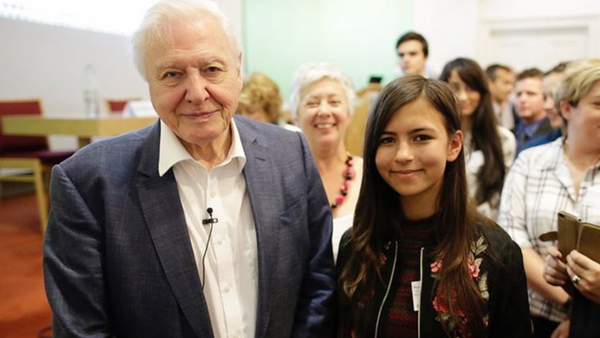Eighteen months ago I had a senior job in the arts, with a decent salary, working on loads of exciting projects. But I was stressed out and feeling frustrated, and I couldn’t work out why. I realised I had stopped having my own creative ideas and sharing them, I had got used to developing other people’s creativity and stopped nurturing my own.
I took a month off work and had different people set different creative challenges for me to do every day. Small things, big things, easy things, scary things. I danced with strangers, drew (very bad) pictures, wrote poetry and went to places I’d never been before, literally and metaphorically.
I never went back to work.
As Matthew Taylor stated in his brilliant talk on the Power to Create, 43% of the working population in this country feel like they are not reaching their full potential at work. This isn’t good enough. With all of the talk about the Value of Culture being discussed in the Warwick Commission, the Arts Council and government, we need to recognise the value of culture in our everyday lives, with normal people, doing normal things. It’s not just about dancing on the stage of the opera house, its about dancing in your bedroom, singing in the shower, painting your toenails, cooking up your favourite dish.
64 Million Artists – an initiative I set up with my colleague David Micklem, aims to do exactly that. Make creativity something we use, and share, in our everyday lives. Something normal, yet extraordinary, that allows us to express who we are, and share our passion and flair with those around us.
We use a simple process – Do, Think and Share – that enables people to use the creative process in an easy, free way that unlocks the potential of everyone in the country. People can sign up to a weekly email challenge that sets different tasks and activities to wake you up and get you to try something different. We’re also developing online courses, tips and tricks to help people take their first steps into doing something creative.
As well as rolling this out online, we are working in community groups and workplaces across the country testing out what happens when people make a commitment to doing something creative every day, week or month. We’re also working with the BBC on the fantastic Get Creative, reaching into living rooms across the country to get people to turn of their TVs and do something less boring instead.
Although we’re not making any great claims that doing this will turn your life upside down, we’re finding that our participants are feeling more motivated, making better connections, feeling more observant and aware, finding it easier to prioritise, and having more confidence. And they haven’t spent lots of money on a course, or learned from any experts, they’ve just been trying something new and seeing what happens.
With Fun Palaces and Voluntary Arts, as well as the RSA, we are part of a growing network of people recognising that everyone is creative, that everyone can reach their full potential, that everyone should have the opportunity to try. That being an artist isn’t about being an expert, it’s something we can all be if we want to be. It’s about living a life we are proud of, expressing our thoughts and feelings and taking time out to doing something different, think about it and share it.
We hope you’ll join us www.64millionartists.com
Jo Hunter is the co-founder of 64 Million Artists and a Clore Leadership Fellow for 2014/15. She works across the Arts and Culture as a strategy consultant. She is also an everyday artist.
Related articles
-
Mya-Rose Craig: Featured Fellow Q&A
Mya-Rose Craig
Mya-Rose Craig is a 20-year-old birdwatcher, environmentalist and activist, author and RSA Fellow. Read our conversation with her as part of our Featured Fellow Q&A series.
-
Creativity during coronavirus
Clare Gage FRSA
The creative industries are rising to the challenge of the crisis. Can we harness arts and culture to build bridges to the future?
-
The Independent Music Conversation: Creating a Network to Support Independent Grassroots Music
Dr Sue Oreszczyn Dr Neil March
FRSA Dr Sue Oreszczyn and FRSA Dr Neil March invite fellows at the RSA who would like to join them in a conversation about how to support grassroots independent artists and their environment.




Be the first to write a comment
Comments
Please login to post a comment or reply
Don't have an account? Click here to register.